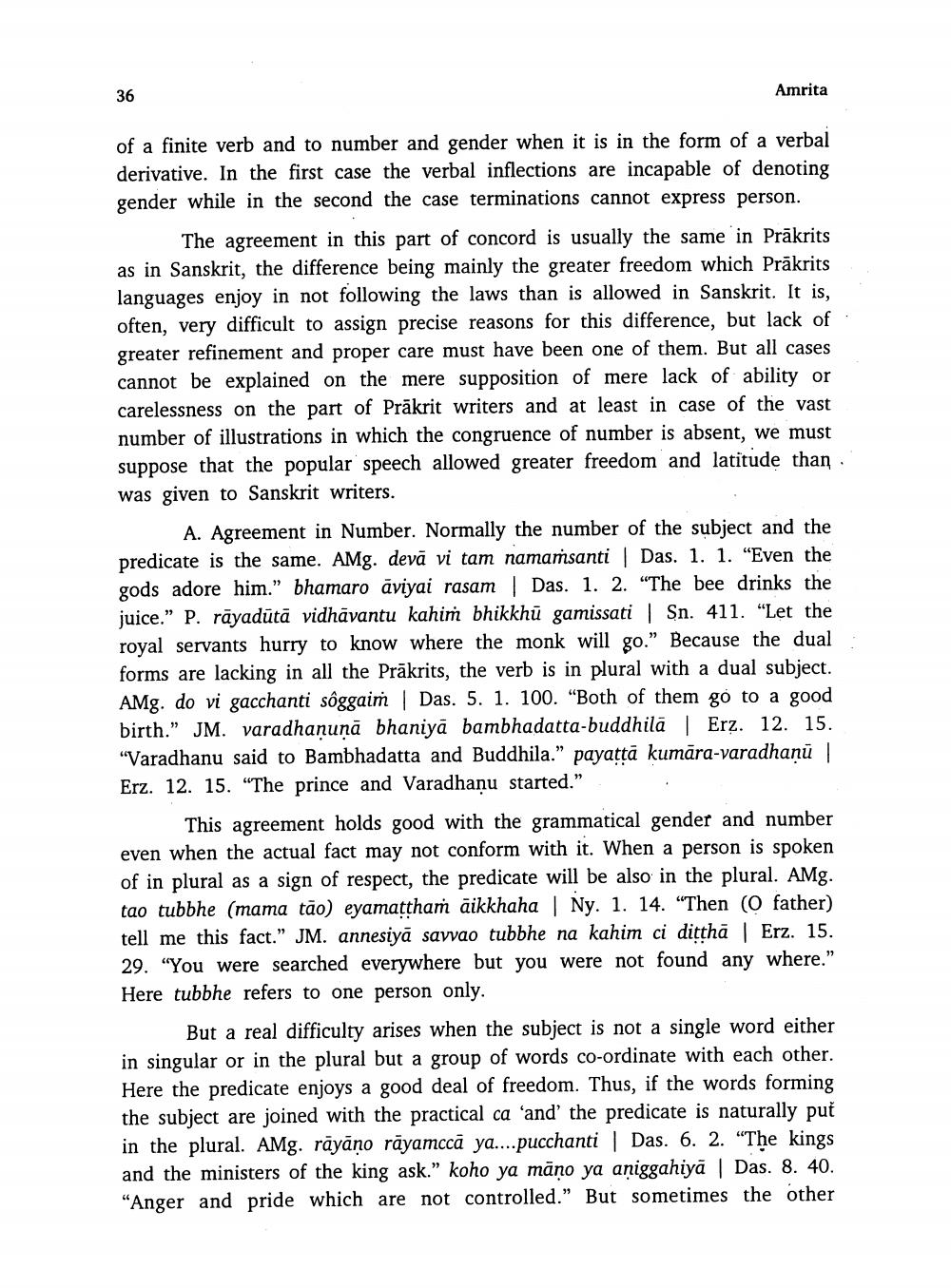________________
Amrita
of a finite verb and to number and gender when it is in the form of a verbal derivative. In the first case the verbal inflections are incapable of denoting gender while in the second the case terminations cannot express person.
The agreement in this part of concord is usually the same in Prākrits as in Sanskrit, the difference being mainly the greater freedom which Prākrits languages enjoy in not following the laws than is allowed in Sanskrit. It is, often, very difficult to assign precise reasons for this difference, but lack of greater refinement and proper care must have been one of them. But all cases cannot be explained on the mere supposition of mere lack of ability or carelessness on the part of Prākrit writers and at least in case of the vast number of illustrations in which the congruence of number is absent, we must suppose that the popular speech allowed greater freedom and latitude than was given to Sanskrit writers.
A. Agreement in Number. Normally the number of the subject and the predicate is the same. AMg. devā vi tam namamsanti | Das. 1. 1. “Even the gods adore him.” bhamaro āviyai rasam | Das. 1. 2. “The bee drinks the juice.” P. rāyadūtā vidhāvantu kahim bhikkhū gamissati | Sn. 411. “Let the royal servants hurry to know where the monk will go.” Because the dual forms are lacking in all the Prākrits, the verb is in plural with a dual subject. AMg. do vi gacchanti sôggaim Das. 5. 1. 100. “Both of them go to a good birth.” JM. varadhanunā bhaniyā bambhadatta-buddhila | Erz. 12. 15. "Varadhanu said to Bambhadatta and Buddhila." payattā kumāra-varadhanū| Erz. 12. 15. "The prince and Varadhanu started."
This agreement holds good with the grammatical gender and number even when the actual fact may not conform with it. When a person is spoken of in plural as a sign of respect, the predicate will be also in the plural. AMg. tao tubbhe (mama tão) eyamattham āikkhaha | Ny. 1. 14. “Then (O father) tell me this fact." JM. annesiyā savvao tubbhe na kahim ci ditthā | Erz. 15. 29. "You were searched everywhere but you were not found any where." Here tubbhe refers to one person only.
But a real difficulty arises when the subject is not a single word either in singular or in the plural but a group of words co-ordinate with each other. Here the predicate enjoys a good deal of freedom. Thus, if the words forming the subject are joined with the practical ca ‘and the predicate is naturally put in the plural. AMg. rāyāno rāyamccā ya....pucchanti | Das. 6. 2. "The kings and the ministers of the king ask.” koho ya mano ya aniggahiya | Das. 8. 40. "Anger and pride which are not controlled.” But sometimes the other




